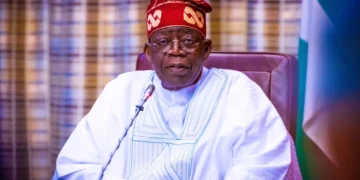The entertainment industry in the last decade has grown in leaps and bounds and has accounted for more than 2% to the country’s GDP. According to a research firm, PricewaterhouseCoopers (PwC), Nigeria’s film industry in 2021 contributed 2.3% ($660 million (239 billion naira)) to GDP.
PwC projects that the industry will increase its export revenue earnings to over $1 billion. This report reflects the potential of the entertainment industry. Nigerian actors and producers from the years of traveling theatres in the 60s, with the likes of Hubert Ogunde, I Sho Pepper (Ishola Ogunsola) and others, to years of celluloid film format of the 80s; and the era of DTH (Direct To Home)- VCD/DVD of the 90s which brought about the name Nollywood has now evolved to success with technology acting as its inducer.
Popular singer and movie director, Abay Esho, said the contribution of actors, costume designers, choreographers, set designers, DOPs, production managers, directors and producers have all contributed immensely to the entertainment and creative sector- both music and movie sub-sector, creating thousands of jobs for the teeming youths.
“Actors are the faces of every thriving film industry, Nollywood is not an exception. They have led others who are behind-the-scenes to evolve with capacity building as one of its drivers of growth. Actors are there and always will be. There will be those thriving continuously and others struggling to thrive.
“It is also important to note that actors are tools to achieving a particular goal, just like the crew, the hard working men behind the scenes who hardly get mentioned. I pray that it will be a better year,” Abay Esho said.
President of the Association of Movie Producers (AMP), Ambassador Queen Blessing Ebigieson, also noted that the relevance of actors and other associated players, are intrinsic to the development of Nollywood and the entertainment industry at large.
She mentioned that the global relevance for Nollywood, with different streaming platforms eager to buy contents and engage filmmakers in commissioning production is laudable.
“Looking at the present gives me joy and relief that our visions and dreams are coming to pass. Therefore it behoves on us and regulators to think deep, reflect on what worked and how can we sustain this building systems all across the value chain of movie production, marketing and distribution as we can bring more money into the country and add more revenue to the GDP,” she concluded.
We’ve got the edge. Get real-time reports, breaking scoops, and exclusive angles delivered straight to your phone. Don’t settle for stale news. Join LEADERSHIP NEWS on WhatsApp for 24/7 updates →
Join Our WhatsApp Channel










